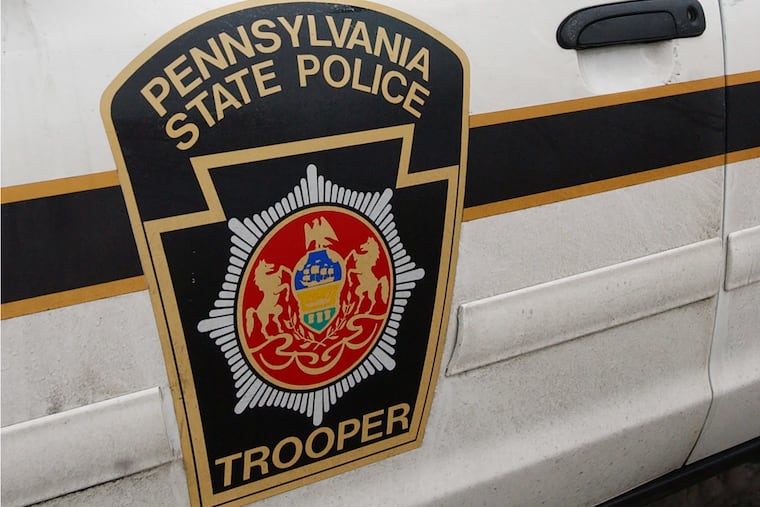State Police begin wearing body cameras as part of a $40M pilot program in south-central Pa.
Calls for state police troopers to wear body cameras were renewed in June after a state trooper shot and killed Anthony Allegrini Jr., an 18-year-old car enthusiast.

HARRISBURG — The Pennsylvania State Police have started a body-camera pilot program in south-central Pennsylvania, a long-awaited move that came less than two months after a fatal police shooting of a Glen Mills car enthusiast on I-95 in Philadelphia.
Approximately 43 state troopers at Troop H in Carlisle began wearing body cameras late last month, State Police Commissioner Colonel Christopher Paris said Monday outside police headquarters.
“We are committed to holding ourselves to a higher standard of accountability,” Paris said. “This program maintains our commitment to staying at the forefront of both equipment and technology, as well as our primary goal of providing our personnel with the resources necessary for increasing personal safety, job efficiency, effectiveness, and service.”
Calls for state police troopers to wear body cameras were renewed in June, after a state trooper shot and killed 18-year-old Anthony Allegrini Jr. His family, which has been pushing for a transparent investigation into his death, has questioned why the state’s main law enforcement agency does not already have body-worn cameras for its 4,740 troopers, while many local departments do.
Approximately half of the 5,900 uniformed officers in the Philadelphia Police Department are trained and equipped with a body camera.
A $40 million contract
The state paid $820,000 for 2,500 body cameras, according to its contract with Arizona-based Axon, which also manufactures Tasers. The five-year contract includes approximately $2 million each year for support and maintenance of the cameras.
As part of the $40 million, five-year contract, the state will also purchase 1,700 new dashboard cameras and 100 interview room cameras, as well as required support and maintenance. Nearly all of the cost is support and maintenance for the cameras, as the state police move from a server-based system to a cloud-based one to maintain all of the footage.
The state has been trying to start a body-camera program since 2020 as part of a larger initiative to increase transparency and replace some of its out-of-date dashboard cameras, Paris said.
Paris said the state police have been unable to launch a body-camera program yet, because of the agency’s statewide size and scope of operations.
“It makes a trooper better, utilizing these tools to document what’s going on,” Paris said. “This is scrutiny that we welcome, and I think that these body cams are going to be a tool, just like the in-car cameras have been for two decades.”
The body-camera pilot program will run for 60 to 90 days in Carlisle, before expanding to each of the state police’s 88 locations, Paris said.
No updates on shooting of Allegrini
Allegrini, a car enthusiast and weight lifter, was killed after two troopers responded to reports of illegal street racing near Penn’s Landing on June 4. State police say Allegrini failed to yield to the officers and struck them, leading an officer to fire into Allegrini’s Audi S4. He died at the scene, and the troopers suffered minor injuries.
According to a video posted to social media after the incident, Allegrini got out of his car after he was shot, before lying alone on the highway while a trooper seemed to turn his gun toward a driver filming the incident.
Paris said the investigation into Allegrini’s death is ongoing, and he had no update.
How the body cams will work
Officers will need to turn on their body camera, and state police aim to have troopers record every interaction with the public, Paris added.
The footage from the body cameras will be subject to a police records request, called an Act 22 request, a spokesperson for the state police said. These requests must be made within 60 days of the recording, and usually require a requester to be a victim or party to the case.
Dave Kennedy, the president of the Pennsylvania State Troopers Association, said the union supports the initiative, “contingent upon Pennsylvania putting into place a fully funded program and a long overdue increase” to the number of state troopers.
“As we continue to face growing crime concerns in communities across Pennsylvania, we cannot afford to lose a single trooper to any new programs,” he added.